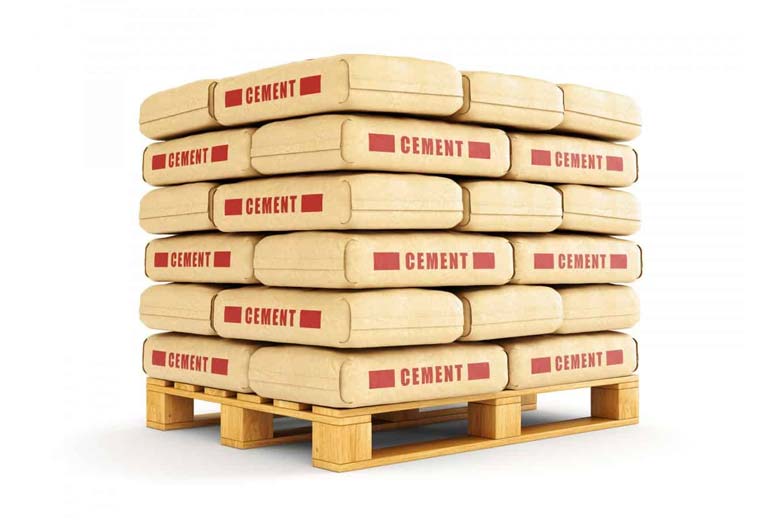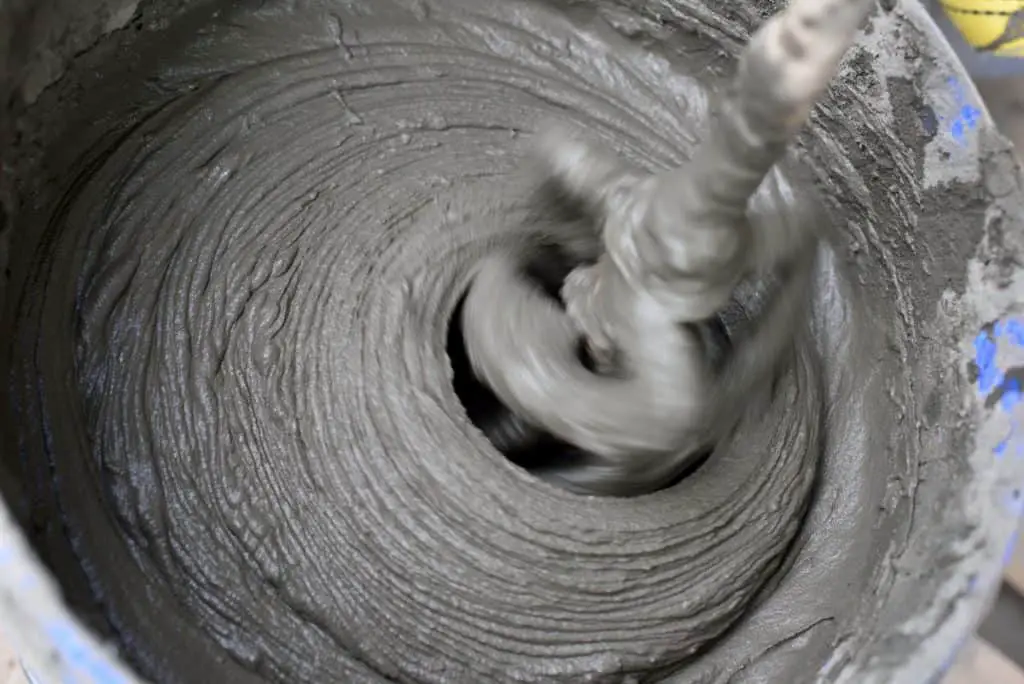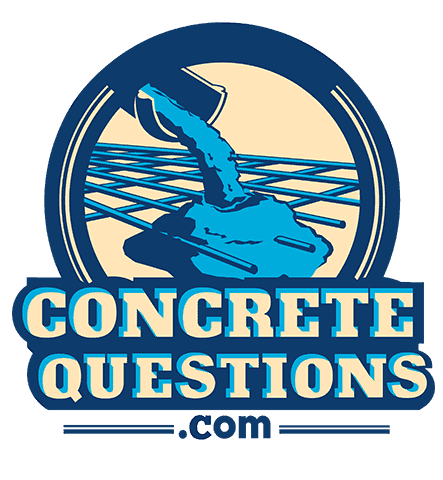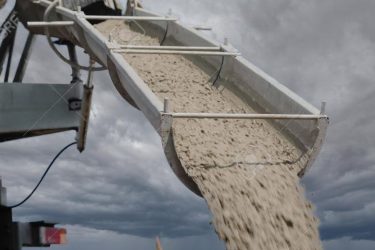Concrete is an extremely versatile construction material that’s used all over the world. Especially in the United States, it’s become the preferred material for driveways especially because of its durability and price. Because most driveways will be bearing traffic with vehicles of different sizes and weights, it’s important to know the best type of mix to use for such DIY projects.
The ideal concrete mix to use for constructing a driveway should have at least a 4,000 psi compressive strength, a water-cement ratio of 0.50, aggregates no larger than 1-inch in size, and a slump thickness of 4 to 5 inches. In colder climates, the mixture should have an air-entrainment value of 6%.
Driveways often are subject to the elements and constant use. If you’re planning on pouring concrete in your own DIY project, or with any concrete DIY project in general, below are a few topics to consider before starting. Always consult professional contractors on any project that doesn’t fit the norm, or if you have any questions regarding construction laws where you live.

Table of Contents
Why Use Concrete For Driveways
Because concrete is such a common material, there are hundreds of manufacturers out there with several brands and mixtures.
Not all concrete mixtures are created equal, and not all of them were created with driveways in mind.
Concrete isn’t even the only material used in making driveways, either. For example, here’s a comparison between asphalt and concrete driveways.
So, why use concrete?
The main reason most professionals and homeowners use concrete for driveways is because it’s cheap. They can be bought in bulk or in single bags from retailers like The Home Depot or Walmart. For example, an 80-pound bag of Sakrete concrete mix on The Home Depot’s website will cost you only $6.30.
Read more: The Real Cost of Installing a Driveway

Another reason concrete is used is because it’s durable if it’s maintained. The best concrete mixes for driveways contain aggregates no larger than 1-inch added in to give it extra compressive strength.
The typical lifespan of concrete can 50 to 70 years if the owner follows proper maintenance on it throughout its life. If the concrete isn’t maintained, the owner can expect the concrete to start falling apart between 10 to 20 years.
Read more: Average Driveway Lifespan: (With 15 real examples)
Compressive Strength and Concrete Grades
One main aspect of concrete to consider when using it to create a driveway is the “compressive” strength. This kind of strength resists compressive pressures, such as the weight of a car.
This differs from “tensile” strength which resists pressures that pull the concrete apart.
Concrete typically has a very high compressive strength and a very low tensile strength.
Concrete mixes are designed with a certain amount of compressive strength in terms of pounds-per-square-inch (psi). The higher the concrete mix’s psi, the more durable the concrete is.
There are different grades of concrete to look at when deciding which mix to choose for your driveway. For this example, we’ll use the M-grade concrete which is used for cubical strength, while the C-grade is used for cylindrical strength.
Below is a table featuring the different M-grades of concrete (Normal, Standard, and High Strength), their cement/sand/aggregates ratio, MPa (megapascals), and PSI:
Normal Grades
| Concrete Grade | Cement : Sand : Aggregates Ratio | MPa | PSI |
| M5 | 1:5:10 | 5 MPa | 725 psi |
| M7.5 | 1:4:8 | 7.5 MPa | 1087 psi |
| M10 | 1:3:6 | 10 MPa | 1450 psi |
| M15 | 1:2:4 | 15 MPa | 2175 psi |
| M20 | 1:1.5:3 | 20 MPa | 2900 psi |
Standard Grades
| Concrete Grade | Cement : Sand : Aggregates Ratio | MPa | PSI |
| M25 | 1:1:2 | 25 MPa | 3625 psi |
| M30 | Design Mix | 30 MPa | 4350 psi |
| M35 | Design Mix | 35 MPa | 5075 psi |
| M40 | Design Mix | 40 MPa | 500 psi |
| M45 | Design Mix | 45 MPa | 6525 psi |
High Strength Grades
| Concrete Grade | Cement : Sand : Aggregates Ratio | MPa | PSI |
| M50 | Design Mix | 50 MPa | 7250 psi |
| M55 | Design Mix | 55 MPa | 7975 psi |
| M60 | Design Mix | 60 MPa | 8700 psi |
| M65 | Design Mix | 65 MPa | 9425 psi |
| M70 | Design Mix | 70 MPa | 10150 psi |
Not all concrete grades are appropriate for a driveway project. For example, it would be unnecessary to use the M70 concrete grade when pouring concrete for a domestic driveway. You have to consider your needs and your specific situation before deciding which concrete type to use. When you do something totally different, like fixing your bathroom floor, you would most likely want the best concrete mix for shower pans, for example. All concrete isn’t the same, just like your specific driveway project isn’t the same as somebody else’s.
Professionals recommend using a mix with about 4,000 psi. So, an M30 concrete grade would work just fine for a driveway.
Related article: Should You Use Rebar in a Concrete Driveway?

Water-Cement Ratio
For driveways, it’s important to keep the proportion of the water to the cement in a concrete mix at the proper level.
The lower the ratio, the higher the strength and durability of the concrete. The higher the ratio, the lower the strength and durability.
The ideal ratio for a driveway is 0.50. You come by this number by dividing the amount of water you use in one cubic yard by the amount of cement in the mix (all in pounds).
For example, if you have 470 pounds of cement, in order to get a ratio of 0.50, use the following formula: 470 x 0.50 = 235. So you would use 235 pounds of water in the mixture.
Read more: What Happens When Concrete Is Too Wet?
Cold Climate And Air-entrainment

In some colder parts of the country, manufacturers will add an air-entrainment value to their concrete. “Air-entrainment” is when microscopic air bubbles are added into the concrete mix and allow space for when the concrete freezes/expands, and thaws/contracts.
They help prevent degeneration and cracking on the concrete surface. The average value for air-entrainment for driveways is 6%.
Related Article: Pouring Concrete in the Cold: How to ensure it won’t crack



